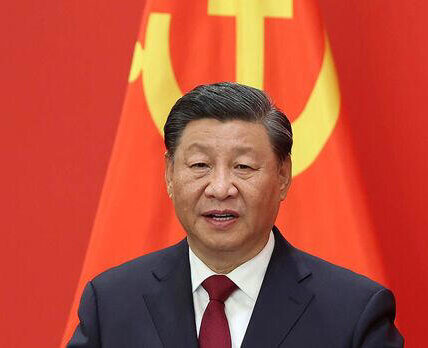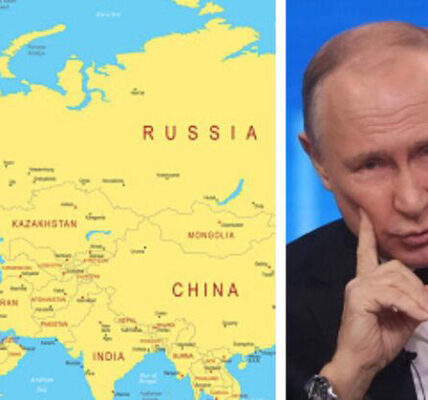Russia calls for end to Ukraine war, urging the U.S. to reconsider military aid and warning of potential dangers. Moscow seeks political solutions, but demands Ukraine’s capitulation.

Russia Calls for End to Ukraine War: Lavrov Warns of U.S. Aid Risks
Russia calls for an end to the Ukraine war, urging the U.S. to rethink its military support for Kyiv and pursue a political solution instead. In a recent interview with Newsweek, Russian Foreign Minister Sergey Lavrov emphasized that reaching a ceasefire is not enough and that the conflict needs to be resolved through diplomatic means. Lavrov’s message comes at a time when the U.S. has increased its military aid to Ukraine, including the provision of long-range missiles, a move Lavrov warns could have “dangerous consequences.”
Lavrov’s comments reflect Russia’s ongoing efforts to shift the global narrative around the war in Ukraine. However, the conditions laid out by Russia to end the conflict essentially amount to Ukraine’s surrender, which has been consistently rejected by both Ukraine and its Western allies.
Russia’s Conditions for Peace: Ukraine’s Capitulation
Russia calls for an end to the Ukraine war by proposing a controversial plan that requires Ukraine to give up significant territory. According to Lavrov, one of Russia’s key demands is that Ukraine hand over control of four regions—Donetsk, Kherson, Luhansk, and Zaporizhzhia—as well as Crimea, which was annexed by Russia in 2014. This demand also includes areas that are not currently under Russian military control.
From Russia’s perspective, these territorial concessions are seen as necessary steps toward peace. Lavrov claims that if the conflict drags on, both Kyiv and its Western supporters may face even greater losses, suggesting that it is in everyone’s best interest to end the war on Moscow’s terms. However, Ukraine and its allies, particularly in the U.S. and Europe, view these demands as unacceptable, equating them to a full-scale capitulation that would undermine Ukraine’s sovereignty and territorial integrity.
U.S. Military Aid: A Central Issue
Lavrov’s interview with Newsweek highlighted another significant concern for Russia: U.S. military aid to Ukraine. The Russian government has repeatedly condemned the U.S. for its increasing support of Ukraine’s defense, especially the supply of long-range missiles. According to Lavrov, this type of aid could lead to “dangerous consequences” for all parties involved, potentially escalating the conflict even further.
Russia calls for an end to the Ukraine war by focusing on the need for political negotiations rather than fueling the conflict through military means. Lavrov argues that the U.S. should support Russia’s proposals for resolving the conflict diplomatically, rather than supplying Ukraine with more advanced weapons systems that could prolong the war. The provision of these weapons, particularly long-range missiles, has become a major point of contention, as Russia views it as a direct challenge to its military operations in the region.
The Role of U.S. Elections in Shaping Policy
As the war in Ukraine continues, the upcoming U.S. presidential election in November 2024 could play a critical role in determining the future of U.S. policy toward the conflict. Lavrov downplayed the importance of the election outcome, stating that both major U.S. political parties have reached a consensus on opposing Russia. He suggested that regardless of who wins the presidency, American foreign policy will remain focused on countering Russia’s actions in Ukraine.
However, Newsweek pointed out that the election could indeed have a significant impact on U.S. support for Ukraine. Currently, U.S. military aid and assistance to Ukraine have been a central issue in the election campaigns of both Vice President Kamala Harris and former President Donald Trump, the two leading candidates. Harris has been a strong advocate for continued support to Ukraine, while Trump has expressed more skepticism about the extent of U.S. involvement in the conflict. The outcome of the election could influence the level of future support Ukraine receives, potentially altering the course of the war.
Russian Information Warfare and Propaganda
It is important to note that much of the messaging coming from Russian officials, including Lavrov, is often part of a larger information warfare strategy aimed at influencing public opinion, both domestically and internationally. Russia calls for an end to the Ukraine war while simultaneously pushing narratives that paint the U.S. and its allies as aggressors in the conflict.
Russian media and government representatives have repeatedly framed the war in Ukraine as a defensive operation, aimed at protecting Russian interests and ethnic Russians living in the contested regions. However, many independent analysts and Western governments see these statements as part of a broader disinformation campaign designed to justify Russia’s military actions and shift blame onto the West.
Lavrov’s warnings about the risks of U.S. aid to Ukraine can be viewed within this context of information warfare. By highlighting the potential dangers of increased military support, Russia aims to sow doubt and division among Ukraine’s supporters, particularly in the U.S., where public opinion on the war remains divided.
The Future of the Conflict
As Russia calls for an end to the Ukraine war, it is clear that both sides remain deeply entrenched in their positions. Russia’s demand for territorial concessions and Ukraine’s refusal to cede any part of its sovereign land have created a deadlock that will be difficult to break without significant diplomatic efforts from the international community.
For now, the war shows no signs of ending soon. While Lavrov’s statements suggest that Russia is open to a political solution, the terms it has proposed are unlikely to be accepted by Ukraine or its allies. On the other hand, continued military aid from the U.S. and other Western nations suggests that Ukraine will have the means to keep fighting, at least in the near term.
Conclusion
Russia calls for an end to the Ukraine war, but its proposals for peace largely hinge on Ukraine’s capitulation, something Kyiv and its allies will not accept. The ongoing conflict remains a complex and dangerous situation, with U.S. military aid playing a crucial role in Ukraine’s defense efforts. As the U.S. presidential election approaches, the future of this aid—and by extension, the war itself—may depend on the outcome.
While Lavrov’s warnings about the risks of U.S. involvement reflect Russia’s frustration with the current situation, it is unlikely that the international community will shift its stance anytime soon. Until a genuine diplomatic solution is found, the war in Ukraine will continue to rage on, with devastating consequences for all parties involved.
Related:
Russia Nuclear Missile Test Threat: 5 Terrifying Escalations Unfolding Now




1 COMMENTS